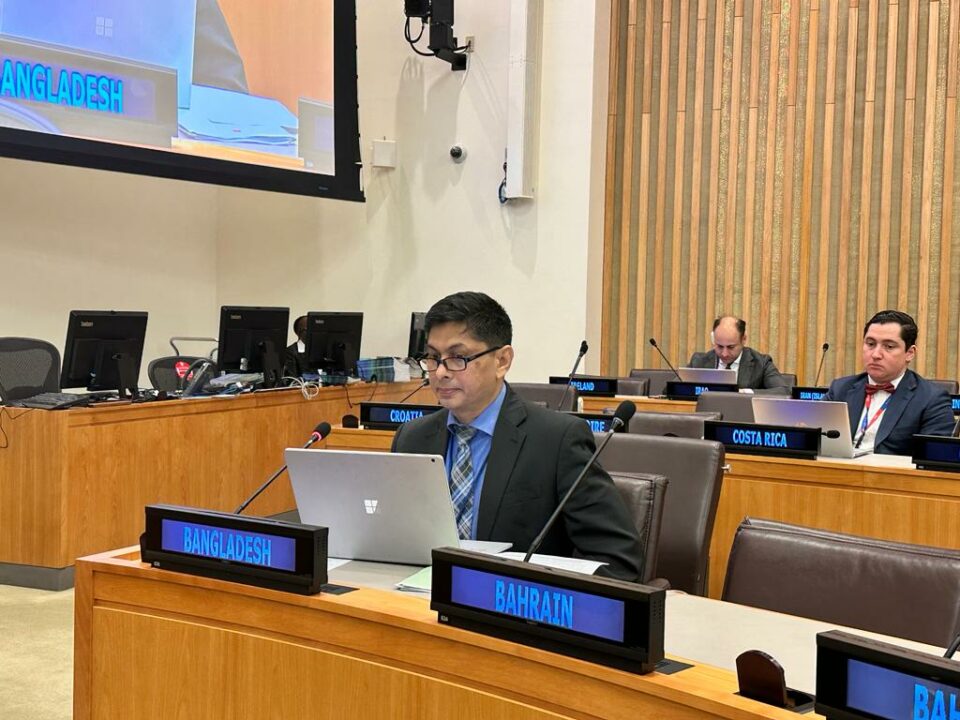Thank you Madam Co-chair.
As I am taking the floor for the first time, I warmly congratulate you both on your appointment as the Co-chairs of this important process.
We welcome the focus of this Open-Ended informal Consultative Process-New Maritime Technologies-challenges and opportunities. I would like to flag the following three points in my national capacity under this agenda item:
First, Following the peaceful settlement of maritime boundaries with our two neighboring countries, marine economy has emerged as of the most important development frontier for our economic development. As we are working to tap the full potential of our marine economy, new maritime technology bears critical importance for the conservation, scientific management and sustainable use of our marine resources.
Second, At the national level, the Government of Bangladesh has introduced innovative biodegradable jute bags to replace the harmful plastic bags in order to support the global effort for save the ocean from plastic pollution. We have formulated comprehensive blue economy work plan for the sustainable use of our marine resources in a healthy and scientific manner. It may be mentioned that the Government of Bangladesh, in collaboration with its local entrepreneurs, is currently working on a flagship climate resilient pilot project namely production of ‘Agar Agar’ from seaweed in our coastal waters.
Third, as a low-lying coastal country, adverse impact of sea-level rise poses severe challenges to our existence. A one-meter sea-level rise can submerge around 40 percent of the land area of the southern part of the country. In this context, new maritime technologies to address such challenges is crucial for Bangladesh. We are ready to work with international community for access to new maritime technologies, capacity building to operate those technologies and financing support.
Finally, the recently concluded BBNJ Treaty, upon adoption and enforcement may facilitate the transfer of maritime technologies among members in need for a healthy ocean for all.
I wish a successful and productive meeting of this Open-ended informal consultative process on Ocean and Law of the Sea.
I thank you Madam Co-chair.
****

